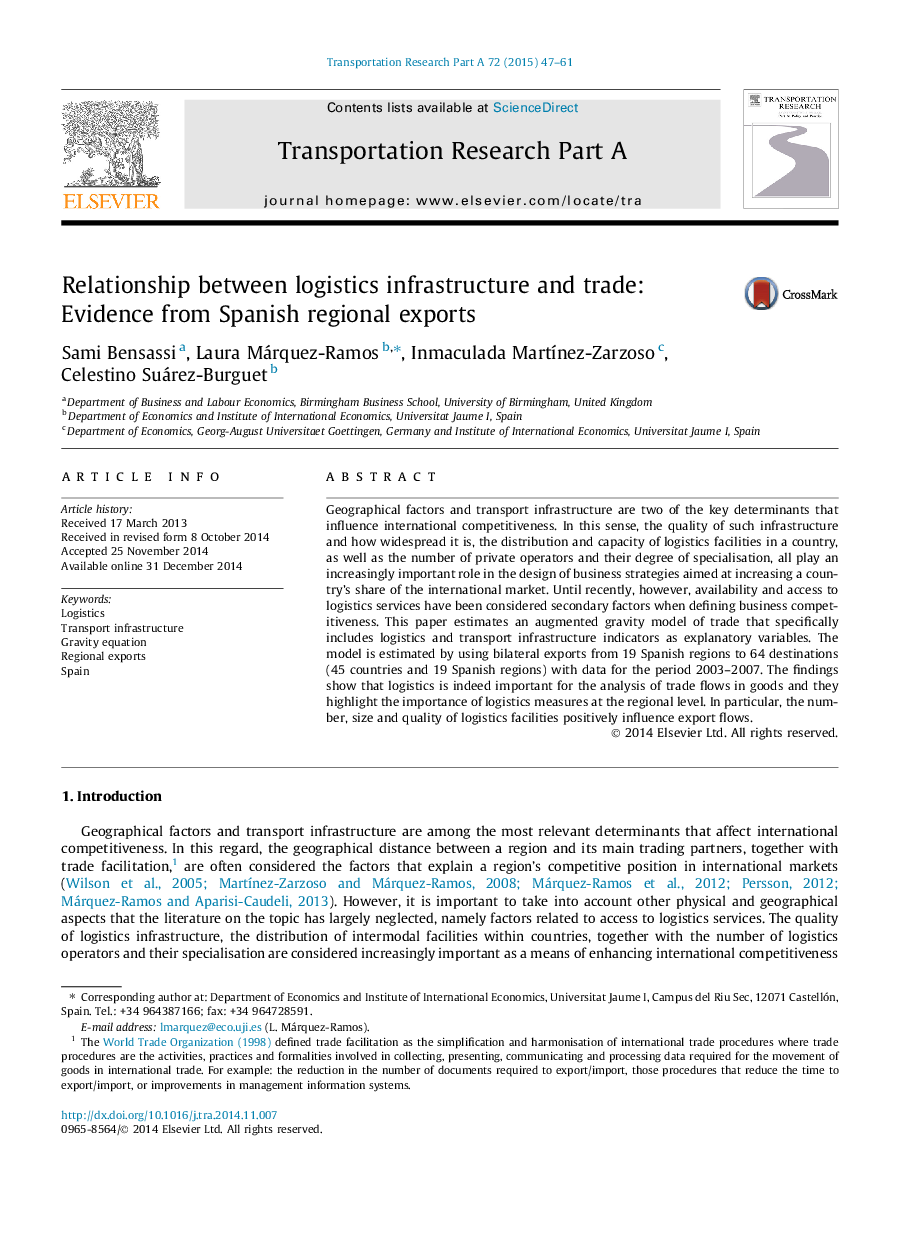| Article ID | Journal | Published Year | Pages | File Type |
|---|---|---|---|---|
| 310626 | Transportation Research Part A: Policy and Practice | 2015 | 15 Pages |
•Spanish geo-strategic location is important for international trade.•Spain is part of the Mediterranean Corridor connecting the Iberian Peninsula to Europe.•We present and evaluate new logistics measures constructed for Spanish regions.•We evaluate the effect of improvements in logistics on Spanish regional exports.
Geographical factors and transport infrastructure are two of the key determinants that influence international competitiveness. In this sense, the quality of such infrastructure and how widespread it is, the distribution and capacity of logistics facilities in a country, as well as the number of private operators and their degree of specialisation, all play an increasingly important role in the design of business strategies aimed at increasing a country’s share of the international market. Until recently, however, availability and access to logistics services have been considered secondary factors when defining business competitiveness. This paper estimates an augmented gravity model of trade that specifically includes logistics and transport infrastructure indicators as explanatory variables. The model is estimated by using bilateral exports from 19 Spanish regions to 64 destinations (45 countries and 19 Spanish regions) with data for the period 2003–2007. The findings show that logistics is indeed important for the analysis of trade flows in goods and they highlight the importance of logistics measures at the regional level. In particular, the number, size and quality of logistics facilities positively influence export flows.
